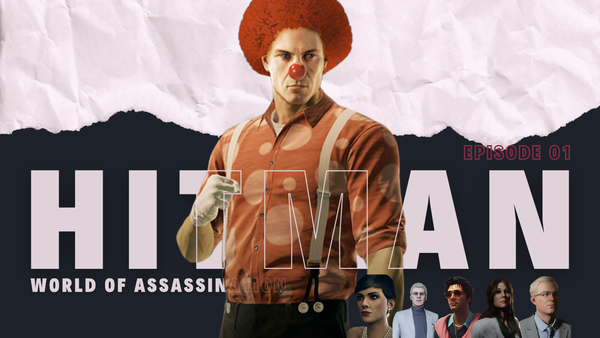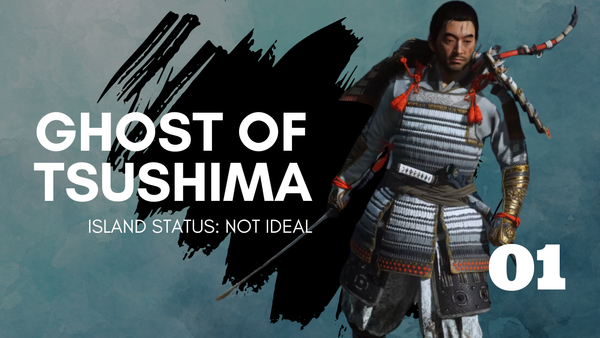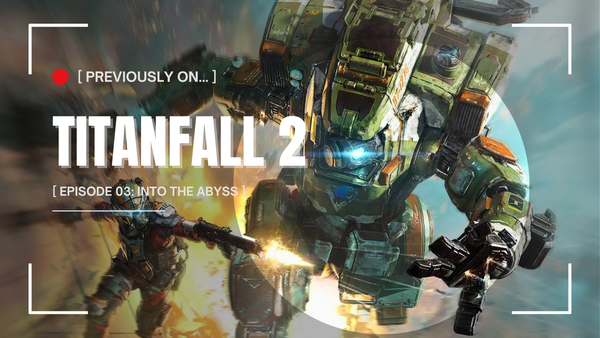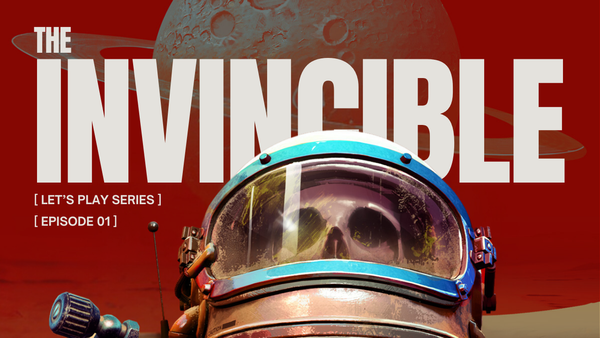Dishonored: Death of the Outsider | Review
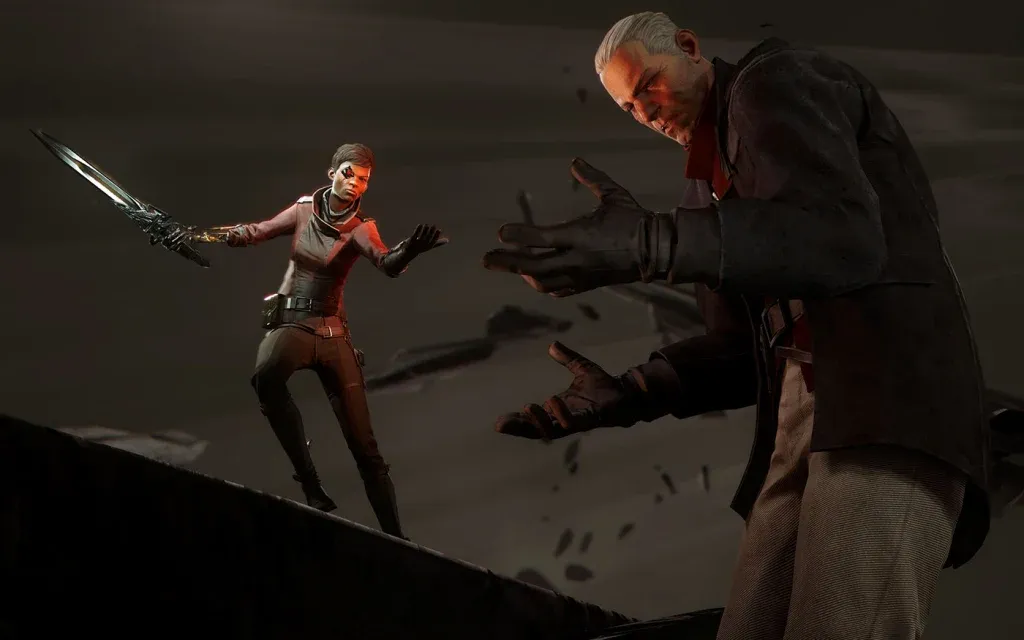
Arkane Studios and Bethesda released Dishonored: Death of the Outsider yesterday. I've played it to the end, and I have a lot of thoughts and feelings. Thought I'd share them. Warning: spoilers.
The missing links
Billie sets out in the first mission, One Last Fight, to find Daud. The basic motivation for that is to find her former mentor — her father figure — and make amends, if she can; and talk about what happened with Delilah. After all, it was her they were hunting in Knife of Dunwall & The Brigmore Witches, and it was Daud who banished her to the Void. They all thought it would be for good, for forever, that Delilah was gone/dead. With Low Chaos generally being the preferred canon, Delilah wandered the Void for twelve years (although time does not pass in the Void) until she found the ritual site — the place where the Outsider was made into a god four millennia ago. She tapped into the power there, by the Outsider's own words, and became a part of him.
We cannot know what effect Emily's canonical banishment of her aunt had on him — whether Delilah being trapped in her own version of reality severed her connection to the Outsider and negated her becoming a part of him. The problem is that Death of the Outsider never mentions Delilah.
It also never mentions The Corroded Man, the first of three planned novels by Adam Christopher, which served as a prequel to Dishonored 2. In it, Zhukov, Hero of Tyvia, carves himself up with the Twin-Bladed Knife, aiming to mess with timelines and reality in order to restore his own life. In the synopsis for The Return of Daud, which should have been published three weeks ago, it said that our dear old Knife heard of a weapon that could kill the Outsider, and returned to Dunwall to find it. Of course, the blade vanished after Emily and Corvo's scuffle with Zhukov. Now of course we know that it fell into the hands of the Eyeless, instead of being snapped up by Daud.
Someone else is missing: Martha Cottings. In the first comic series, The Wyrmwood Deceit, Billie saves her from a burning building, clearly adorned with her Void arm and, if I remember correctly, carrying the Twin-Bladed Knife. The Wyrmwood Deceit served as the setup for Dishonored 2 as well, revealing that Delilah Copperspoon was fighting her way back into the world. As Billie travels in time to save Martha, she tells her that "everything must play out as it will," meaning that Cottings can't warn Emily and Corvo of Delilah's return, and that the Coup must happen as it did. If Billie saved Martha, she must have been important. She wouldn't have survived the fire, so that can't be why Billie pulled her out.
But we never see or hear of Cottings in Death of the Outsider, leaving that plot end loose — one of many.
In DH2, the Heart tells Emily that Meagan/Billie has a destiny greater than this, far beyond Karnaca. What we were hoping for, then, was badassery. Billie making her mark on the world — and on our hearts — the way Daud did in Knife of Dunwall and The Brigmore Witches. But Death of the Outsider gives us none of the characterization and closeness to the character we're playing that we got when playing Daud in the DLC. Her agency extends as far as finding Daud and freeing him, and then it evaporates. Why? Because it must make room for the main conceit of the game: that killing the Outsider is a good idea rooted in any sort of sense or logic.
Daud's character arc
The thing is: Daud was done. He told Corvo that he had enough of killing when asking for his life; he laid down his blade on Jessamine's tomb, and then he vanished. Daud, for lack of a better word, retired.
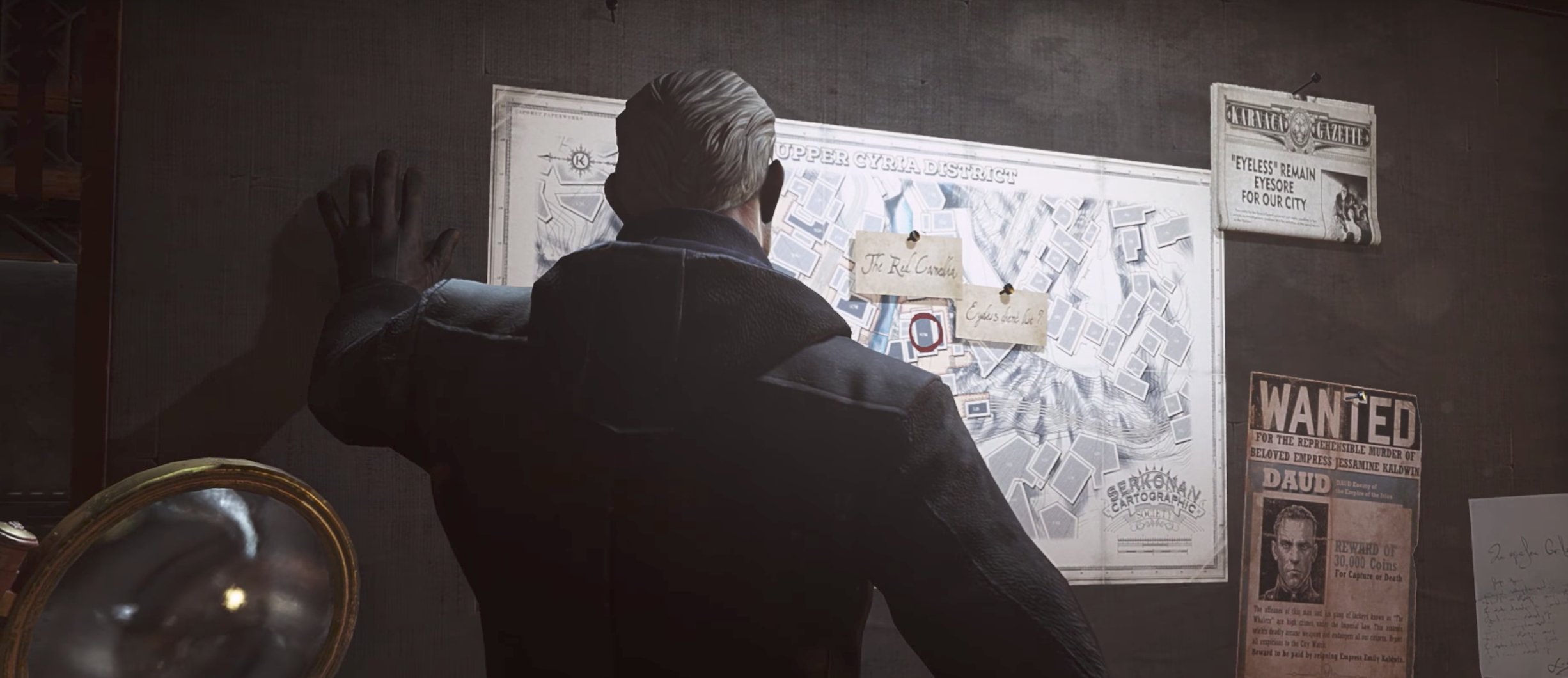
It's this simple reason why Corvo, as per The Corroded Man, ultimately did not regret his decision to let him live. Daud was a tool in the hands of the powerful, even as he fancied himself possessing power over others. He wrote in his journal once that he used the Outsider's Mark to force his will on the world. But was it really his will? It was his grudges, as they're termed in this story, and his hatred of those who would exploit the world and the people beneath them. [x]
But he was a tool in Burrows' hands, and if Daud hadn't killed Jessamine, then Burrows would have found someone else to do it. (Someone else might have fudged the job. There's a reason why Daud was the most-feared man in the Empire.)
Still, those were his choices. No-one forced him to become a hired killer.
The Outsider gives his Mark to those he deems pivotal — those who have the drive, the means, the intellect, the guts and the fury to change the world. He gives people power that makes them more than what they were, and he expects them to abuse it; only to be pleasantly surprised once in a blue moon — to paraphrase what Harvey Smith has said in many a Developer Commentary. The Outsider is surprised when Corvo leaves his targets alive — arguably, the non-lethal approaches in Dishonored are no less harrowing than death and arguably a lot more cruel than simply stabbing someone in the face. The Outsider is surprised when Daud manages to save Emily's life without spilling one more drop of blood. The Outsider is surprised when Emily, 15 years later, takes back her throne without turning into the violent rage monster she'd have every damn reason to become after what's been done to her (and that makes High Chaos runs so much fun).
Knife of Dunwall and The Brigmore Witches were about Daud taking his life back into his own hands. He didn't set out on a path of redemption — he was given a name, a mystery, and the fact that the Outsider contacted him again after years of silence between bitter exes was pretty much his only reason for unravelling that mystery. As well as "dodging" what consequences the Outsider had darkly warned him of [x]. The Outsider knew that, if he wanted Daud to get out of the house, a riddle would do it. So he served him one on a silver platter. Daud didn't know what it would lead to, that he would eventually "save Emily Kaldwin from a living death as Delilah's puppet." He didn't set out on a noble, selfless quest; but still the experience changed him. After all, he stays in Dunwall, knowing Corvo is roaming the streets, knowing he will come for Daud eventually. He waits for him, instead of fleeing. He acknowledges that killing the Empress broke him, and that he needs to leave Dunwall, if he can. If Corvo lets him.
Daud's character assassination
And now, "T" (who I firmly believe is Thomas) tells her in a letter that Daud "never stopped killing"? Seriously? That rings about as true as a fart in a bath.
The problem is that even old, grumpy, pig-headed Daud needs reasons to do stuff. When the very first trailer dropped, I said to my friend, "This is Daud coming out of retirement. For him to do that, you need a huge, huge reason. And this... kinda isn't it."
The main conceit of the game, as iterated above, is Daud's absolute conviction that killing the Outsider is the best idea he's ever had.
We never see or hear how he arrives at this conclusion. We never hear an actual explanation.
The only thing that might vaguely make sense is that, if the Outsider doesn't exist, he can't bestow powers on people, and thus Daud would be able to prevent another man like him. He does say this in the game, but only once, and it's never expanded on or used as a motivation.
He keeps going on about the Outsider making him what he was — and I do believe that the Outsider would have egged him on, would have definitely fed into his ego. But my understanding of their relationship is that the Outsider got bored with him because, instead of doing the thing and forcing his will on the world, Daud let others decide who lived or died. In the DLC, the Outsider describes Daud as someone who never swore fealty — but you don't have to bend the knee to anyone to have convictions, or to act on them. As Knife of Dunwall, Daud had independence in the absolute — except he was nothing but a tool.
I absolutely understand that Daud is angry at the Outsider. And I don't read all of his lines in the game as abdicating responsibility for his own actions, especially killing Jessamine. But still, the cognitive leap is missing. We are missing the catalyst, the thing that made Daud put down the trowel and pick up a map.
Did Daud hear of the Coup and decided that, if the Outsider had never marked Delilah, none of this crap would be happening, again? Did the Coup stir up memories, open up old wounds? Did Daud blame himself for merely banishing Delilah when he could have killed her?
There are many reasons to be angry at the Outsider
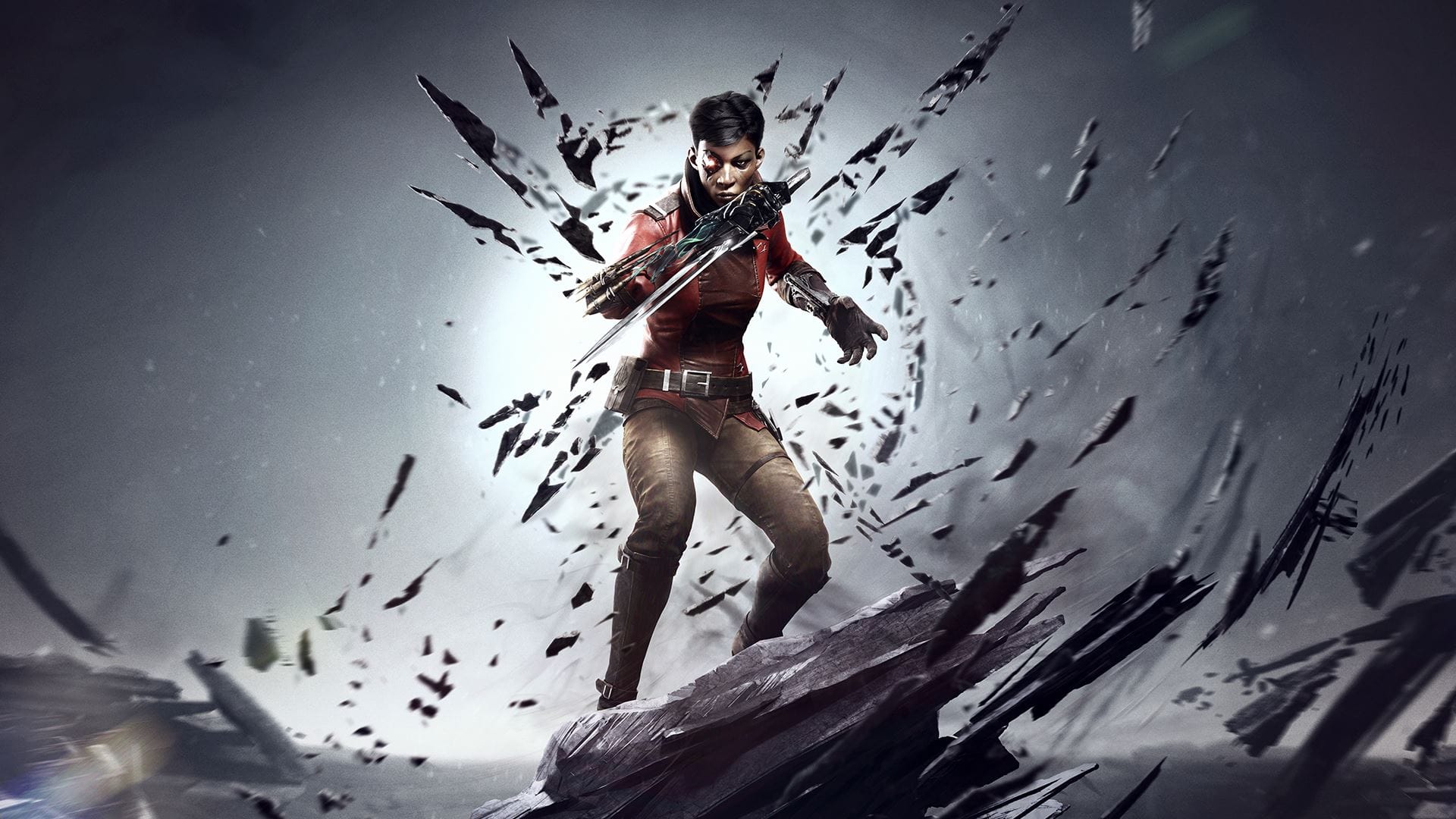
Billie does ask the Outsider, if he's an advocate of the abused, why does he only speak to a select few? Why never, for instance, to her? If he is trapped and suffering in the Void, why doesn't he strike back by marking as many as he can? Why doesn't he, quite plainly, help those who need him?
This is where the connection to Those Who Walk Away from Omelas crumbles, a story Harvey Smith has professed himself a great fan of, and which is clearly echoed in the Outsider's situation. The child in the basement in Ursula K. Le Guin's short story Omelas is truly powerless. Before Death of the Outsider, the Outsider was a near-omniscient deity who had fun turning the levers of society, and who even his Marked saw as all-knowing, if not all-powerful.
In the Void, he is the child — the Eyeless know that he is not dead, that he is merely sleeping, trapped. They leave him in there because he has to be there, to uphold the existing power structures. Because they made it so. This duality gives his character a cruel edge, made more inhuman(e) by centuries upon centuries merged with the Void. He could help, yes, but does humanity deserve his help? I wouldn't say so. So he strikes back as he can, by marking those who struggle, and who might change the world.
To answer Billie's question, he did help someone once: the Lonely Rat Boy, a piece of lore established as far back as Dishonored 1. A boy, bullied and beaten, who was given the Devouring Swarm ability, if we want to be technical about it. He unleashed them on his attackers but, unable to control the swarm, he died. In some tellings, he was the first victim of the rat plague.
So the Outsider did — he picked someone, a boy, who needed help, and gave him power over those who tortured him. It was a short-lived triumph, as the boy didn't carry the Mark for long. He wasn't pivotal, he wasn't powerful. He was someone who needed help.
We don't know the circumstances under which the Outsider marked Daud, it is never revealed. We know Daud was plucked out of Karnaca, taken away from his home. In lore, it is said "a man came and led him away," [x] but we can't know if that was the Outsider or someone else entirely. Between Daud leaving Serkonos and arriving in Dunwall (twice, years apart) and being marked lie several years [x]. He travelled across the Isles, visiting the Outsider's shrines, he tells Corvo this. Perhaps the Outsider saved him, too, and perhaps it was what was done to him that made Daud make his living as a killer; but Daud (again, very conveniently) declares all of that unimportant in his final audiograph.
Daud himself saved lives, albeit never as many as he took. He took in street kids, mercenaries — he made them into killers, yes, but he also gave them purpose in a city that was poised to devour them; and even when they couldn't share in his supernatural abilities, he never abandoned them [x].
Daud himself realised that the Void god knew what would happen when he killed Jessamine, and he watched him do it anyway. Yes, the Outsider could have warned him. He didn't. The Outsider could have warned Emily and Corvo about Zhukov, about Delilah. He didn't. But the thing is — the Outsider isn't responsible for the humans of the Empire. They make their own choices.
Let's hear it from Daud:
Our choices always matter — to someone, somewhere. And sometimes, in ways we can't always fathom, the consequences come back to us.
There's much debate in the fandom whether killing the Outsider would accomplish anything. Here's a few thoughts: 1) The Void hungers for an avatar, but it can sustain itself without one. 2) The Abbey of the Everyman uses the Outsider as a scapegoat for all of humanity's ills.
Meaning: the Void may or may not be stable after the Outsider is gone. The Void and the Empire are connected, and events mirrored. The demise or liberation of the Outsider will have an impact on the world, but we cannot know which way that will go. It is not shown in the epilogue of the game, either. Also: the Abbey needs the Outsider. And here is where two huge inconsistencies come into play.
Billie is smart — smart enough to consider the consequences. So why won't she?
Billie asks Daud, after the first mission, whether they work for the Abbey now — implying that the Abbey would want the Outsider gone. Which is patently untrue. And of course, later, Billie writes in her travel log that she'll point and laugh as the Abbey crumbles after the Outsider is gone as they can't use him to strike fear into the hearts of the people any longer.
What I want to know is this: how is the world going to know that the Outsider is gone? Everyone seems to know him, but few have proof of his actual existence. It could take decades until people truly realise that he is no longer the custodian of the Void — provided that reality doesn't collapse following the conclusion of the game. As such, how will the Abbey know to fall apart without the Outsider as an enemy and scary story to tell the kids? Is everyone going to rise up, and lead their best lives without a care for the Strictures all of a sudden?
The other inconsistency: Billie says in the epilogue that the world may change for the better, but that the Void will still be there, beyond. And that now there's no-one to decide who is touched by it; implying that the Outsider was the gatekeeper who plucked ponies out of the herd.
So... if there's no-one to decide who is touched by the Void, isn't that... even worse? The Void is a hungering cosmos, according to Sokolov, it might be even less discerning and of more questionable taste than the Outsider ever was. The game is entirely unclear on what consequences, exactly, Daud and Billie are hoping for, and what they think will happen to existing power structures. The demise of a god should be a catastrophic event. As per the game, it won't do shit. Of course, that way Arkane leaves the door open for another installment — another story set in the Empire, perhaps in a world suffering the result of what Billie chose to do.
Yes, Billie can choose to spare the Outsider, free him, and restore his humanity. But the choice comes late, and the fact that it isn't even considered until the very end, until Billie inadvertently stumbles upon the possibility, is telling.
Billie — listless protagonist
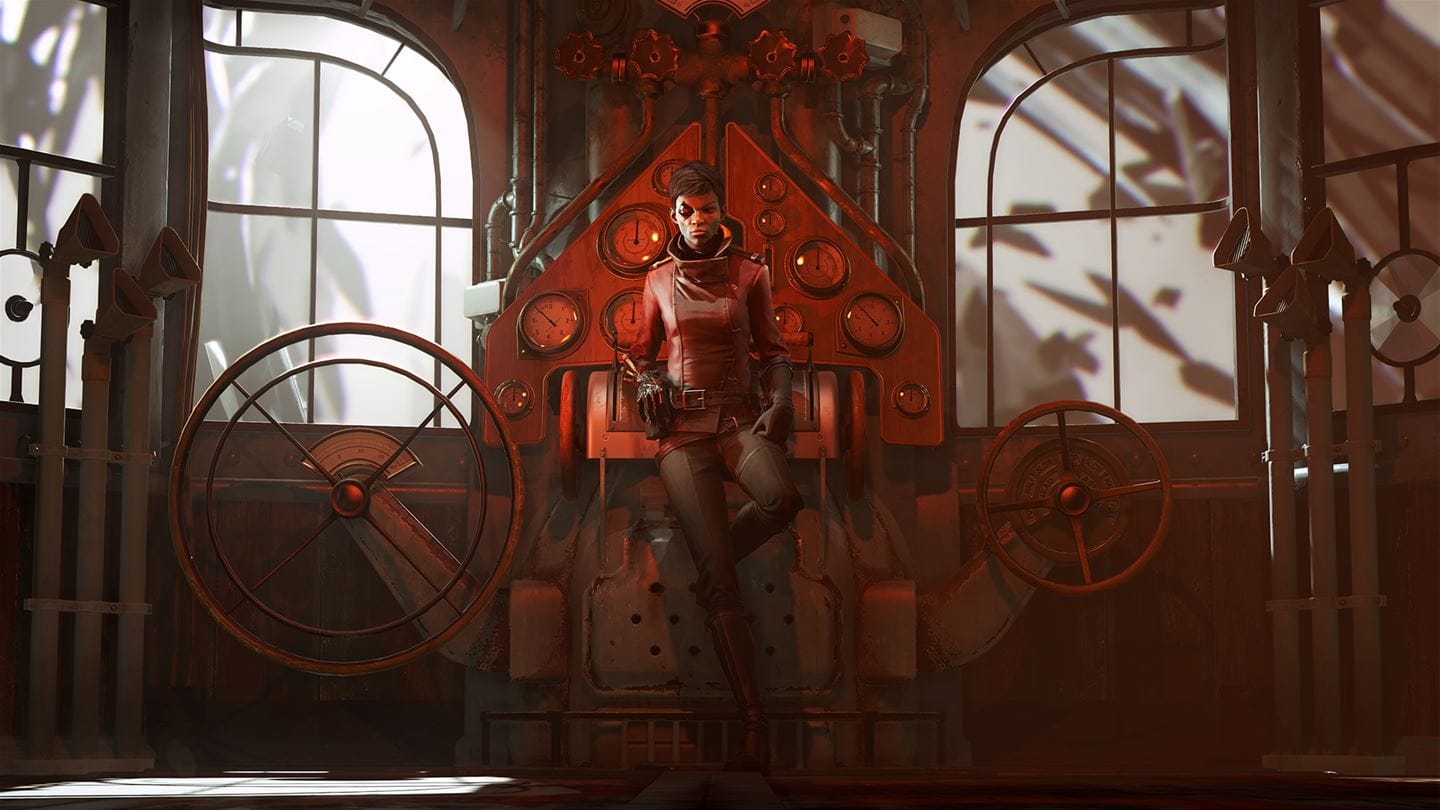
She was supposed to be the shining new protagonist, the perfect person to bring this Dishonored story to an end. And then... she wasn't anymore. What we get from her is devotion to Daud, which does ring true.
But that's all we're getting.
It is telling, then, that Billie does question Daud intermittently, but never to the extent of changing his mind — or her own. Daud writes in his diary that Billie must have her own reasons for going along with it, because otherwise she wouldn't.
That is... a cop-out if I've ever seen one. A very neat way of never actually having to explain Billie's reasoning. In her travel log, she writes she might just be searching for someone else to give her purpose — which is an insult to her character, and denies her any development.
In Knife of Dunwall, she had true and good reasons for wanting Daud gone, for betraying him to Delilah. She was his second, his right hand — it was understood between them, so she thought, that she would take over from him when he became too weak to lead the Whalers, or if he died on a job. Her reason was not hatred, it was ambition. In Low Chaos, she realises through Daud's own actions that betraying him was wrong, she tells Delilah she was a fool to listen to her, and she kneels before Daud and lets him decide whether she lives or dies. He lets her live, tells her to leave Dunwall. And she does.
But now, she's had 15 years to regret what she did — to Emily, to Corvo, to Daud, and the countless lives she helped end or, at the very least, destroy. She was an accomplice to Emily in taking down Delilah, and it gave her the conviction that her life was not over yet. It was her decision to come to Dunwall after Sokolov was abducted, to risk her life to warn Emily and Corvo of the Crownkiller murders, Duke Abele, and Delilah. It was her decision to seek Daud, to reclaim her old name, to reclaim her identity.
But instead of a new lease of life, what she gets is Daud's regrets and half-cooked plans dumped on her, and she accepts them as her own with no visible qualms. She gets her purpose thrust upon her, instead of making her own; instead of realising, just as Daud once did, that holding the knife for others isn't enough.
And yet, on top of Daud having no good reason to want to kill the Outsider in the first place, Billie goes along with it, for no discernible reasons of her own. In short, she got the shaft.
In the end, she keeps her promise to a dead man, and while his spirit, trapped in the Void, is all that remains of him, all that remains of Billie is the hollow notion of a character that never fulfilled its promise.
About the only thing that rings true is the affection between them, the heartfelt way they speak to each other after 15 years. But that, too, is owed to Daud believing he is going to his death. If the Knife of Dunwall is being sweet, it's because he knows he won't have to live with those feelings for much longer.
The Death of the Outsider as a concept
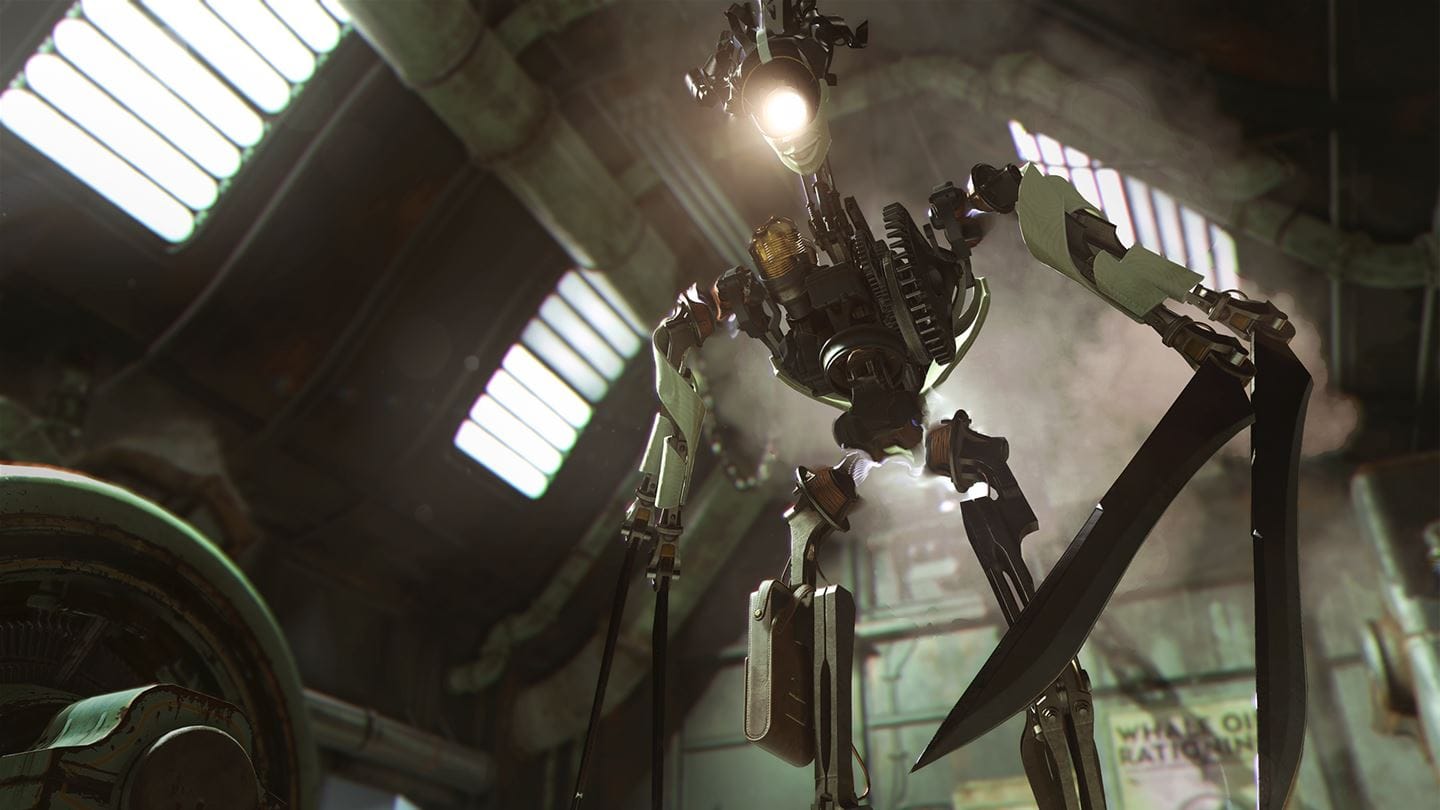
When complaining about a story, one is often told to come up with one's own ideas, if they're so much better. Coming out of The Corroded Man, The Wyrmwood Deceit, and Dishonored 2, I can see about half a dozen ways this game could have still been about the death of the Outsider, without giving two amazing characters this kind of dud of a mission.
1) The Outsider, being perturbed by Delilah tapping into the vault of power in the Void, asks Daud for help. (Daud tells him to fuck off. Fair.)
2) The Outsider tasks Billie with finding the Knife, giving her a reason to travel back in time and look for evidence of the Knife prior to Dishonored 2. Optional: he wants her to find him — he's tired.
3) Daud hears about the Coup, about Delilah returning from the Void, and begins poking around in Karnaca himself, at the same time as Emily works to retake her throne. He finds the Eyeless and, being unable to resist a Keep Out sign, investigates them. He realises just what it is they might be hiding at about the same time as Billie finds him, and when she does, they decide together what to do.
4) Daud hears rumours about witches springing up in Serkonos. When he puts his ear to the ground and hears the name Delilah Copperspoon, he debates for a while what to do. Horrified that whatever he did to her obviously wasn't permanent, he tries to find out how she got out of the Void, perhaps even tries to make contact with the Outsider. Tales lead him to Dunwall around the time of The Corroded Man. He doesn't participate, but learns about the Knife. Tracking its disappearance, he follows it back to Serkonos.
5) When Billie finds Daud, he's been captured by the Eyeless for months, forced to fight in the pits. He knows they're obsessed with the Outsider, and he wants to know why, and what they're hiding.
6) Billie — supposed to be the damn protagonist — is contacted by the Outsider because something is wrong with him, and only she can help. Emily sedating Stilton changed the timeline, which is obviously canon as Billie has her arm and eye at the beginning of the game. Time is bleeding around her, giving her the edge she needs to help the Outsider. Delilah's tinkering with the Void and his source of power changed him, changed the Void. And now he might need to make the ultimate sacrifice to put an end to it.
You see, those are lots of ideas, off the top of my head, around the concept of the death of the Outsider. There are lots of ways this could have played out. It's a pity Arkane chose this one.

